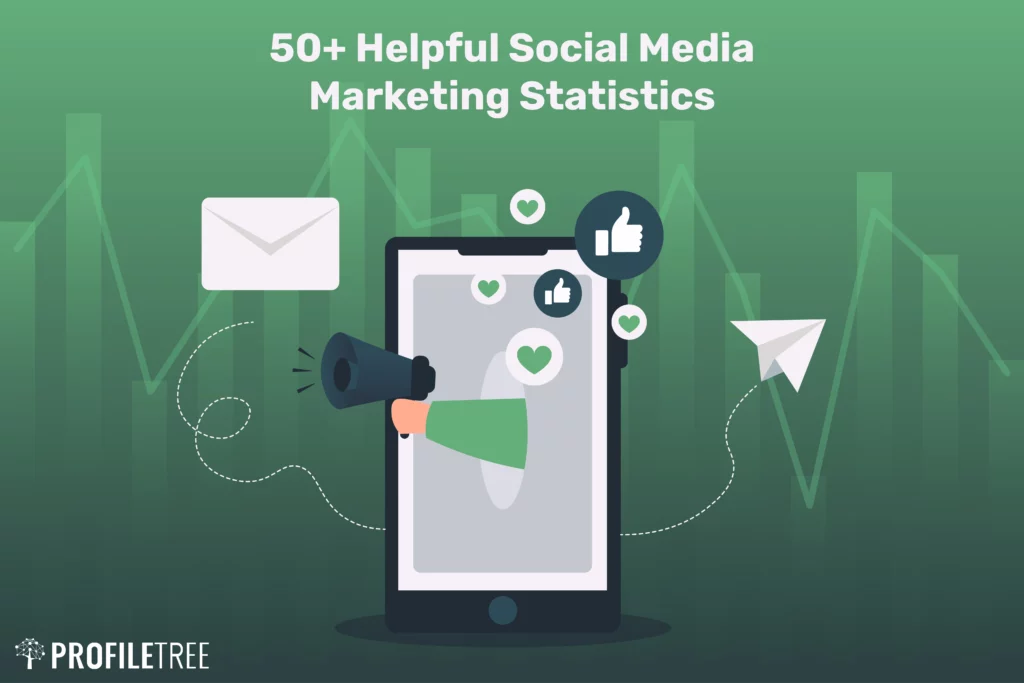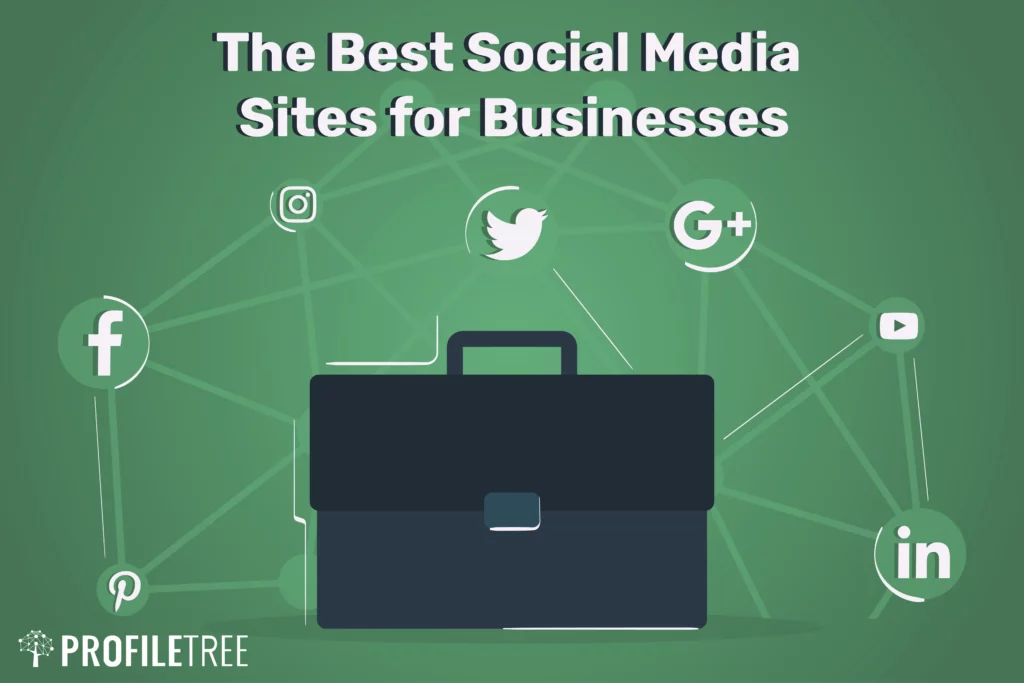In the ever-evolving marketing landscape, social media has emerged as a dominant force, wielding immense power to reshape brand perception and drive sales growth. Gone are passive marketing strategies; today’s consumers demand active engagement, authentic connections, and personalised experiences. This article delves into the impact of social media marketing on sales, exploring its multifaceted benefits and unveiling the strategies that unlock its full potential.
This article will review how social media fosters enhanced brand awareness, facilitates targeted advertising, and cultivates meaningful customer relationships. We will witness the power of compelling content in attracting leads and the persuasive influence of community building in fostering brand loyalty. Furthermore, we will unveil the secrets to leveraging customer service and support on social media platforms, transforming challenges into opportunities.
This exploration is not merely for the social media savvy; it extends to businesses of all sizes and industries seeking to unlock the hidden potential within their social media presence and propel their sales to new heights.
Table of Contents
Social Media Marketing for Sales Increase
In today’s digitally driven world, social media marketing has become essential for businesses seeking to amplify their brand reach, foster meaningful customer connections, and drive sales increase. Here’s a closer look at the key benefits that social media marketing offers:
Brand Awareness & Visibility
Social media marketing transformed the process of brand awareness in the last decade. Here are some aspects where its positive impact is significant.

Increased Reach
Social media platforms boast billions of active users, providing businesses an unparalleled opportunity to reach a wider audience than traditional marketing methods. Studies show that 72% of adults in the US use at least one social media platform, highlighting its immense potential for brand exposure.
Enhanced Visibility
Businesses can increase their discoverability within social media by consistently creating engaging content and utilising relevant hashtags. Social media algorithms favour active accounts, further boosting visibility and brand recognition.
Targeted Advertising
Unlike traditional advertising with broad reach, social media platforms allow businesses to execute marketing segmentation strategies based on demographics, interests, and behaviours. This ensures that marketing messages reach the most relevant audience, maximising advertising effectiveness and return on investment (ROI).
Social media advertising offers greater affordability and flexibility than traditional advertising channels. Businesses can set precise budgets and track campaign performance in real-time, allowing for continuous optimisation and cost control.
Customer Engagement & Relationships

Unlike one-way communication methods, social media fosters interactive experiences where businesses can directly engage with their audience. Responding to comments, conversing, and addressing concerns build trust and strengthen customer relationships.
Social media platforms allow businesses to cultivate communities around their brand. Companies increase their customers’ sense of belonging and loyalty by fostering interactions and encouraging user-generated content.
Community Building & Advocacy
Engaged and satisfied customers can become powerful brand advocates on social media, organically promoting your products or services through positive reviews, recommendations, and user-generated content. A study found that 92% of consumers trust their friends’ and family’s recommendations over all other forms of advertising.
Positive word-of-mouth through social media interactions enhances brand credibility and trust among potential customers. Seeing real people share positive experiences with your brand builds confidence and encourages others to consider your offerings.
Content Marketing & Lead Generation
By sharing informative, engaging, and valuable content on social media, businesses can attract potential customers interested in their products or services. This content can educate, entertain, and inspire, ultimately guiding them through the sales funnel.
Social media provides an effective platform for distributing content to a broader audience. Sharing blog posts, articles, videos, and infographics significantly affects brand awareness and increases website traffic, ultimately leading to more qualified leads.
Social Proof & User-Generated Content
Positive reviews and user-generated content on social media act as powerful forms of social proof, influencing potential customers’ buying decisions. Studies show that 84% of consumers consider online reviews as much as personal recommendations.
User-generated content adds authenticity and trust to your brand image. Seeing people using and enjoying your products or services resonates with potential customers and builds confidence in their purchasing decisions.
Customer Service & Support
Social media platforms offer a direct channel for addressing customer concerns and inquiries. Businesses can respond promptly to messages, comments, and reviews, demonstrating responsiveness and commitment to customer satisfaction. This fosters positive brand perception and encourages repeat business.
By actively monitoring social media conversations, businesses can monitor and address potential issues before they escalate. This proactive approach demonstrates customer care and helps build stronger relationships with your audience.
Social Media Marketing Impact Statistics
The impact of social media marketing on sales increases is not just theoretical; concrete data and real-world results back it. Here’s a glimpse into the quantifiable benefits businesses have experienced:
- Reports suggest that organisations engaged in social media selling experience a 61% increase in revenue compared to those who don’t.
- Companies with a strong social media presence generate an average of 17% more leads than those without.
- 67% of marketers believe social media marketing helps them increase brand awareness.
- Brands with over 10,000 followers on Twitter receive an average of 2.1 times more website traffic than those with fewer followers.
- Companies that use social media marketing generate an average of 61% more leads than those who don’t.
- Landing pages shared on social media convert at a 2% rate, compared to a 0.5% conversion rate for email marketing alone.
- Brands with strong social media engagement see a 23% higher customer retention rate than those with low engagement.
- Companies that respond to customer inquiries on social media within an hour see a 70% increase in customer satisfaction.
- 78% of marketers believe social media marketing delivers a positive ROI.
- Social media advertising generates an average ROI of $2.80 for every $1 spent.
Case Studies
- Birchbox: By leveraging social media to build an engaged community and promote user-generated content, Birchbox increased its customer acquisition by 25% and revenue by 800% within two years.
- Dunkin’ Donuts: Through interactive social media campaigns and influencer partnerships, Dunkin’ Donuts increased brand awareness by 18% and saw a 6.6% rise in sales within a year.
Social Media Marketing Challenges and Considerations

While social media marketing presents various opportunities, it has challenges. Here are some key considerations businesses need to navigate to maximise their success:
Standing Out in the Crowd
The social media marketing landscape is highly competitive, with businesses competing for the same audience’s attention. Standing out requires creativity, consistent engagement, and a unique brand voice. Social media trends and algorithms are constantly evolving. Businesses must stay updated on the latest trends, adapt their strategies accordingly, and create content that resonates with their target audience in the ever-changing digital landscape.
Resource Management
Formulating and applying a successful social media marketing strategy requires dedication, time, and resources. Businesses, especially smaller ones, may struggle to allocate sufficient resources for consistent content creation, community management, and campaign monitoring.
Building a skilled and experienced social media team can be challenging, especially for businesses with limited resources. Finding individuals who understand the intricacies of different platforms and can create engaging content is crucial for success.
Measuring Success and ROI
Accurately attributing sales directly to social media efforts can be complex. Businesses must implement effective tracking and analytics tools to measure their campaigns’ impact and identify improvement areas. Also, Justifying the investment in social media marketing to stakeholders requires clear evidence of its impact on brand awareness, lead generation, and sales growth.
Maintaining Brand Consistency and Authenticity
Achieving the right balance between maintaining a consistent brand voice and adapting to each platform’s unique tone and style is crucial. Businesses must be authentic and relatable while adhering to their brand identity.
Social media exposes businesses to potential criticism and negative feedback. Developing strategies to address concerns promptly and professionally is essential to maintain a brand reputation and build trust with your audience.
Data Privacy and Security
Businesses must comply with data privacy regulations like GDPR and CCPA when collecting and using customer data on social media platforms. Social media can be a breeding ground for misinformation and online threats. Businesses must protect their brand reputation by monitoring online conversations and promptly addressing potential issues.
Social Media Platforms for Marketing
Choosing the suitable social media platform to market your business depends on various factors, including your target audience, industry, and marketing goals. Here’s a breakdown of some popular platforms and their potential suitability for different industries:
- Pros: Largest user base, diverse demographics, versatile advertising options.
- Cons: The algorithm prioritises paid content with less organic reach for businesses.
- Suitable for: Most industries, especially B2C, e-commerce, and those targeting broad audiences.
- Pros: Highly visual platform, strong engagement with photos and videos, influencer marketing potential.
- Cons: Primarily focused on aesthetics, limited text content options.
- Suitable for Fashion, beauty, travel, lifestyle brands, and businesses with visually compelling products or services.
- Pros: Real-time conversations, news and information sharing, excellent customer service.
- Cons: Fast-paced environment, limited character count, potential for negativity and misinformation.
- Suitable for: News organisations, tech companies, B2B brands, and businesses seeking real-time engagement with their audience.
- Pros: Professional networking platform, B2B marketing opportunities, thought leadership potential.
- Cons: Limited organic reach for businesses requires a professional content approach.
- Suitable for: B2B companies, professional service providers, recruiters, and businesses targeting decision-makers.
YouTube
- Pros: Powerful video marketing platform, high engagement potential, excellent for tutorials and demonstrations.
- Cons: Requires high-quality video production, competitive landscape, and long-term content commitment.
- Suitable for: Educational institutions, entertainment companies, businesses with visually engaging products or processes, and those seeking brand storytelling opportunities.
- Pros: Visually driven platform for discovery and inspiration, ideal for product discovery and tutorials.
- Cons: Primarily female user base, limited direct sales options.
- Suitable for: E-commerce businesses, DIY and craft brands, recipe sharing, and visually appealing products with tutorials or inspiration potential.
TikTok
- Pros: Rapidly growing platform, high engagement with short-form videos, the potential for viral reach.
- Cons: Younger user base requires a creative and trendy content approach.
- Suitable for: Businesses targeting younger demographics, brands with a playful and engaging personality, and those seeking to leverage the power of short-form video content.
Conclusion
By embracing the benefits of social media marketing, including enhanced brand awareness, targeted advertising, and community building, businesses can unlock significant sales potential. Quantifiable data showcases the tangible impact of social media, with increased sales, improved lead generation, and enhanced customer engagement as testaments to its effectiveness.


